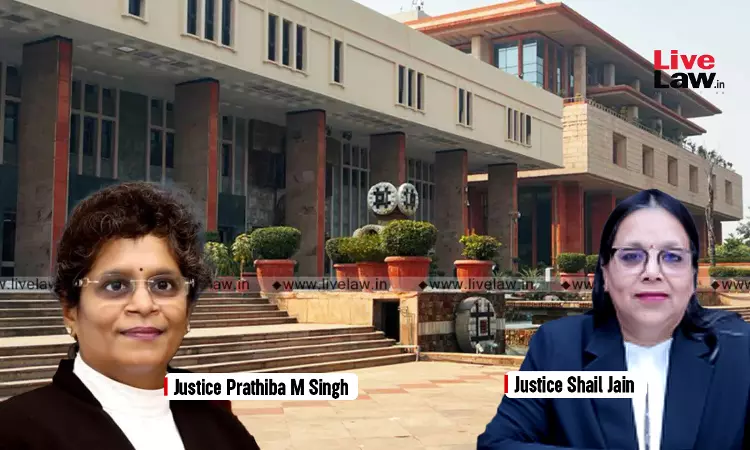- Home
- /
- High Courts
- /
- Delhi High Court
- /
- S.171 GST Act | Businesses...
S.171 GST Act | Businesses Registration Can Be Cancelled Over Non-Reduction Of Prices After GST-Rate Cut: Delhi High Court
Kapil Dhyani
30 Sept 2025 9:30 AM IST
The Delhi High Court has held that an authority constituted under Section 171 of the Central Goods and Services Tax Act 2017 can order businesses to reduce their prices following reduction in GST rates applicable to their products.A division bench of Justices Prathiba M. Singh and Shail Jain further held that such authority can also impose penalty or cancel GST registration of those in...
The Delhi High Court has held that an authority constituted under Section 171 of the Central Goods and Services Tax Act 2017 can order businesses to reduce their prices following reduction in GST rates applicable to their products.
A division bench of Justices Prathiba M. Singh and Shail Jain further held that such authority can also impose penalty or cancel GST registration of those in default, in extreme cases.
“In the event the 'authority' confirms there is a necessity to apply anti profiteering measures, it has the power to order the supplier / business concerned to reduce its prices or return the undue benefit availed by it along with interest to the recipient of the goods or services. If the undue benefit cannot be passed on to the recipient, it can be ordered to be deposited in the Consumer Welfare Fund. In extreme cases, the 'authority' can impose a penalty on the defaulting business entity and even order the cancellation of its registration under GST,” it observed.
The observations were made by the Court while dealing with a challenge to constitutional validity of Section 171 of the GST Act.
Section 171 pertains to Anti-Profiteering measures. Section 171(2) provides for the constitution of National Anti-Profiteering Authority (NAPA).
Significant to note that NAPA was substituted by the Competition Commission of India in November 2022. Thereafter, in September, 2024, the Principal Bench of the GST Appellate Tribunal was empowered to discharge the functions earlier being discharged by NAPA.
Consequently, the Anti-Profiteering Wing of the GST Appellate Tribunal was constituted to look into anti-profiteering matters.
The High Court said that the anti-profiteering measures enshrined in the GST law provide an institutional mechanism to ensure that the full benefits of input tax credits and reduced GST rates on supply of goods or services flow to the consumers.
“This institutional framework comprises of the 'authority' under Section 171. Hence, in the event the 'authority' confirms there is a necessity to apply anti profiteering measures, it has the power to…” the Court said.
It added that constitutionality of the provision was already upheld by a coordinate bench in Reckitt Benckiser India Pvt. Ltd. v. Union of India (2024), which said that Section 171 has a flavor of consumer welfare regulatory measure, as it seeks to achieve the primary objective behind the Goods and Services Tax regime i.e. to overcome the cascading effect of indirect taxes and to reduce the tax burden on the final consumer.
“Thus, it is clear that the purpose of the 'anti-profiteering mechanism' is to safeguard consumers' interests and guarantee that businesses would transfer the benefits of lower tax rates and input tax credits to the final consumers,” the Court said and disposed of the matter.
Appearance: Mr. Vipul Agrawal, Nodal Counsel for Petitioner; Mr. Kumar Visalaksh, Mr. Arihant Tater, Mr. Ajitesh Dayal Singh and Mr. Saurabh Dugar, Advs. Mr. Ripudaman Bhardwaj, CGSC with Mr. Kushagra Kumar and Mr. Amit Rana, Advs. Mr. Ruchesh Sinha, SSC/ Nodal Counsel with Ms. Upasn Vashisth, Adv. for Respondents
Case title: M/s Sharma Trading Company v. Union of India
Case no.: W.P.(C) 13194/2018



